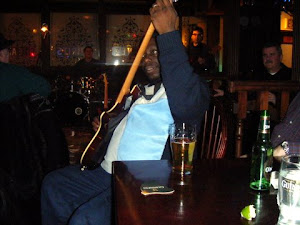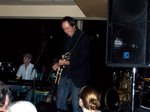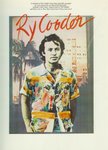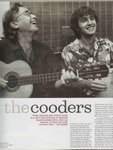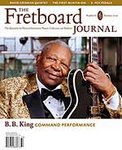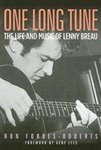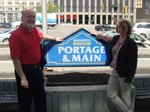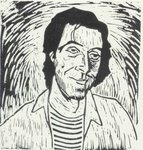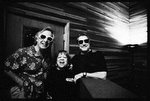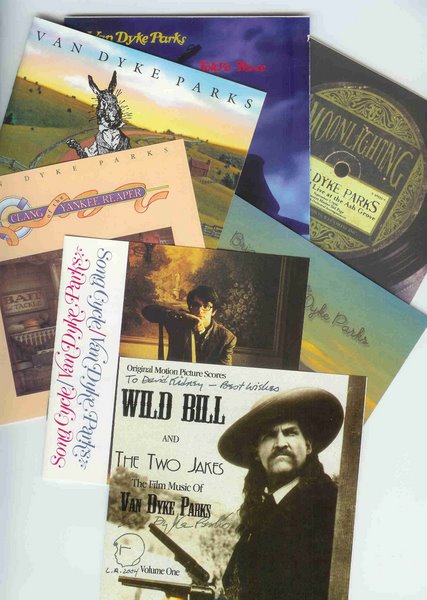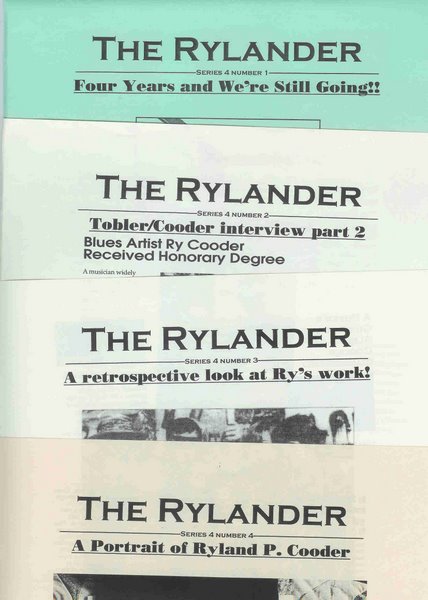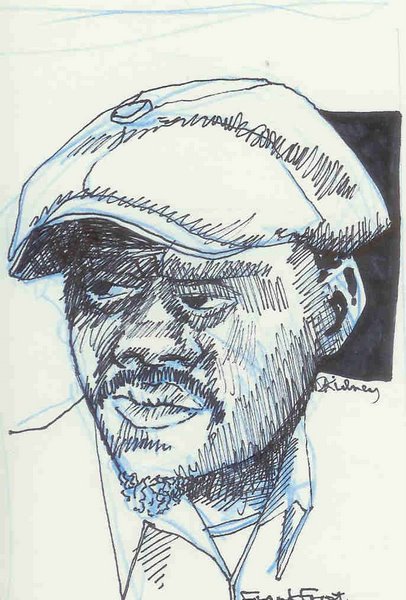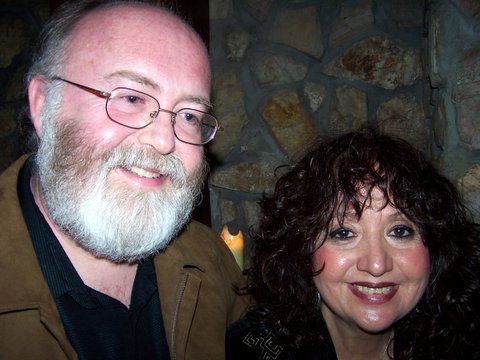
It's a long drive from stately Rylander Manor to the Big Smoke, especially on a Friday evening, of a long weekend. Nonetheless my wife and I made the trek, and considering everything...it was a fairly simple journey. A Man Called Wrycraft had invited us to attend TWIST & SHOUT the second annual tribute to the Beatles. The poster is fantastic, using imagery from HELP! to advertise this homegrown show.
Walked into the room and there was Michael, who waved us over and in his booming voice said, "David...didn't you have a hat on the last time we met? Meet Gurf Morlix!" Two minutes in and I'd been introduced to Gurf Morlix...not bad. After a brief chat (and an autograph) we took our place at the next table and ordered dinner. Pasta and sausage for me, beef stroganoff for Milady. The food at Hugh's Room is not bad, but I think their menus could use an update.
The show started at 8:30 with the sound of the pipes from the bar. That's right...THE PIPES! Bagpipes, played by Grier Coppins, leading the Highland Brothers in a spirited version of George Harrison's sitar masterpiece, "Within You, Without You". Pipes, drum and sax marched to the stage, the tune melding into "Rain". Then the pipes and drum were laid down and replaced by guitars for "Hey Bulldog" and more. Then more pipes as the trio retreated to the bar. Michael introduced Aaron Jensen and the Omnium Gatherum who sang "In My Life" and "Got to Get You Into My Life" in guitar accompanied vocalese. Lovely. They were followed by a bluesy "Yesterday" and "Yer Blues" from Alfie Smith and Nicole Christian. Interesting, if a bit awkward. "Yesterday" doesn't really lend itself to blues scales. Next up, Toronto producer/guitarist Ray Montford who did weird things to "Girl" and almost redeemed himself with an instrumental "Come Together".
After a brief intermission the music began again with David Celia bravely tackling "Happiness Is A Warm Gun" and "A Day In The Life"! Awesome really! The Indo-African trio Sharbat was up next with long renditions of "Let It Be" and "Eleanor Rigby". World Music rules. Gurf Morlix, who had been watching and enjoying the show with the rest of us, then took the stage. He played "From Me To You" and Ringo's "Don't Pass Me By" as if they were Townes Van Zandt songs! I would've loved to hear a whole set by him...maybe next time.
That left Saidah Baba Talibah and Donna Gratis to finish the night. Saidah's voice and Donna's guitar were magical, adding soul to two tunes from Abbey Road. "You Never Give Me Your Money" and "I Want You/She's So Heavy" both sounded great. Then Michael called the whole cast back to the stage for a singalong on "Don't Let Me Down". It was fun! The whole audience got involved. In fact the audience was just dying to get involved and would have happy sung along at any point during the night.
Then it ended. We wandered into the night. Drove home and dreamed of John, Paul, Ringo and George. A great evening. Thanks Man Called Wrycraft, thanks a lot!

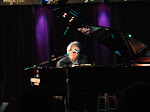









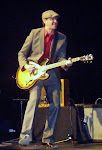



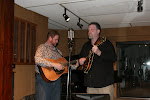.jpg)

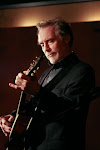.jpg)









